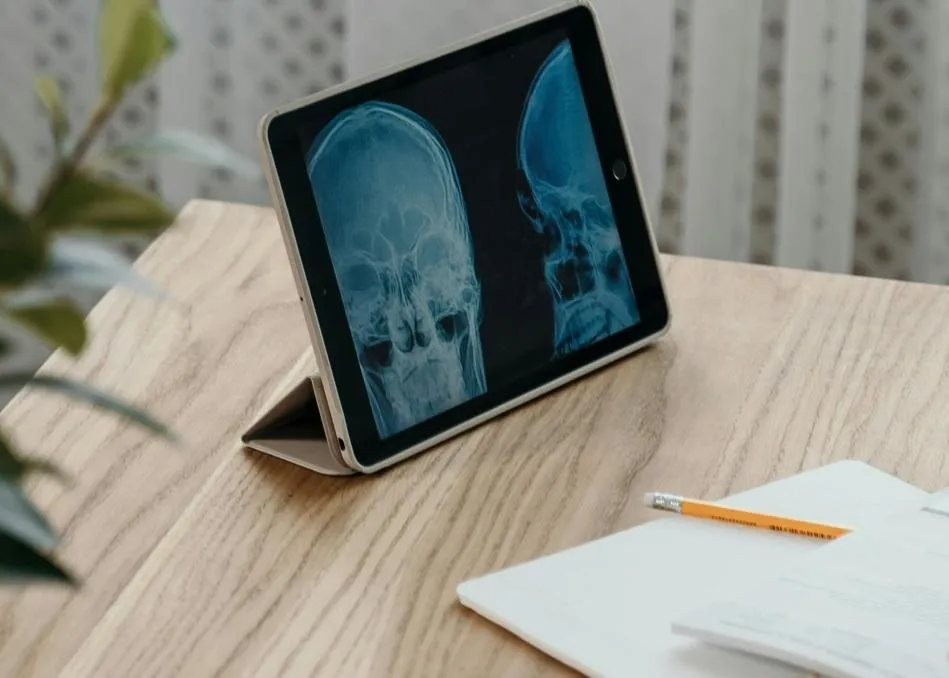
Understanding Traumatic Brain Injury (TBI)
A Traumatic Brain Injury (TBI) results from an impact to the head that disrupts normal brain function. TBIs range in severity from mild and moderate to severe. Among these, concussions are classified as mild to moderate TBIs. According to the CDC, in 2020, there were over 64,000 TBI-related deaths in the United States, which averages to about 176 deaths per day linked to this condition.
TBIs are categorized into two primary types:
- Open Traumatic Brain Injury: This occurs when an object penetrates the skull, directly impacting the brain.
- Closed Traumatic Brain Injury: This type happens when there is no penetration of the skull but the brain is injured as a result of a bump, blow, or jolt to the head.
Concussions, a common form of closed TBI, often occur from incidents like car accidents or sports injuries. Immediate medical attention is crucial for concussions, followed by a period of rest. Recovery from a concussion can vary but typically is achievable within a few months.
Moderate to severe TBIs often involve more significant brain function disruption, potentially leading to prolonged unconsciousness and requiring an extended recovery period. These injuries necessitate comprehensive medical evaluation and ongoing care to manage the complex symptoms and rehabilitation process.




Compensation in Worcester, MA Brain Injury Cases
In cases of brain injuries in Worcester, MA, the compensation you may be entitled to often depends on the injury's severity. The responsible party might be required to cover various damages, including medical expenses, pain and suffering, and lost income—both past and future. Accurately assessing ongoing medical costs involves detailed evaluations by healthcare experts and your brain injury attorney.
Victims may need treatment from a range of specialists for an extended period, which can include neurologists, neuropsychologists, physical therapists, and speech and language pathologists, among others. The treatment path can be long and requires comprehensive management.
The parties potentially liable for a brain injury can vary widely and might include employers, intoxicated drivers, individuals who commit violent acts, medical professionals, and property owners. Determining liability accurately is crucial and depends heavily on the specifics of how the injury occurred.
Worcester Traumatic Brain Injury (TBI) FAQ
How Prevalent Are Traumatic Brain Injuries?
Traumatic brain injuries (TBIs) are a significant health concern in the United States, with substantial data tracked and reported by the Centers for Disease Control and Prevention (CDC). In 2019, there were 223,135 hospitalizations related to TBIs. In the following year, TBIs were responsible for 64,362 deaths. However, these figures only represent a portion of the total impact, as they do not include TBIs that are treated solely in emergency departments, primary care, urgent care settings, or those cases that do not receive medical treatment at all.
This underlines the vast, often unreported prevalence of TBIs, highlighting the need for awareness and comprehensive medical care for those affected. These injuries can have lasting impacts on individuals' health, requiring significant medical attention and rehabilitation.
What Are The Common Causes Of Traumatic Brain Injuries?
Traumatic brain injuries (TBIs) can occur under numerous circumstances, often stemming from negligent or harmful actions. Here are some frequent causes of TBIs:
- Medical Malpractice: Errors in medical treatment can lead to severe brain injuries. This includes mistakes in surgery or improper management of anesthesia.
- Slip and Falls: These incidents are a major cause of TBIs across all age groups, especially in elderly individuals.
- Sports-Related Injuries: Concussions and other brain injuries are common in contact sports, where impacts to the head can occur regularly.
- Motor Vehicle Accidents: Collisions involving cars, motorcycles, or bicycles often result in head injuries due to the sudden and forceful impact.
- Workplace Accidents: Industrial and construction environments, in particular, pose risks for head injuries from falls, equipment malfunctions, or falling objects.
- Physical Assault: Violent encounters involving blows to the head can lead to serious brain injuries.
- Product Malfunctions: Defective products, especially those meant to protect the head or those that can strike the head if they fail, can cause brain injuries.
Understanding the diverse sources of TBIs is crucial for prevention and ensuring adequate safety measures are in place in various environments.
How Do I Recognize Symptoms of a Traumatic Brain Injury (TBI)?
After any incident involving a head impact, it’s crucial to monitor for symptoms indicative of a traumatic brain injury. Early detection can be vital for effective treatment and management. Here are common symptoms to be aware of:
- Loss of Consciousness: Any period of unconsciousness, whether brief or extended.
- Vision Changes: This can include blurred vision, double vision, sensitivity to light, or even loss of sight.
- Dizziness and Balance Issues: Difficulty maintaining balance or feeling dizzy can indicate brain trauma.
- Altered Consciousness: This might manifest as a coma, a semi-comatose state, or other alterations in consciousness.
- Motor Impairments: Difficulty moving, coordination problems, or paralysis.
- Vital Sign Anomalies: Notable changes in pulse or breathing rate, often accompanied by increased blood pressure.
- Spinal Fluid Leakage: Clear fluid leaking from the ears or nose.
- Nausea and Vomiting: Persistent gastrointestinal discomfort after an injury.
- Fatigue: Excessive tiredness that does not seem to improve with rest.
- Persistent Headaches: New or worsening headaches post-injury.
- Auditory Changes: Ringing in the ears or other hearing disruptions.
- Cognitive and Behavioral Changes: Memory issues, impaired judgment, or difficulties with concentration.
- Incontinence: Loss of control over bowel or bladder functions.
- Sensory Issues: Numbness, tingling, or reduced sensation in body parts.
If you notice any of these symptoms following an accident, take the following steps immediately:
1. Seek Emergency Medical Care: Visit the nearest emergency room to ensure that you receive prompt medical evaluation and care.
2. Document Symptoms: Keep a detailed record of all symptoms and their progression. This is especially important if you are observing someone else who might be injured.
3. Diagnostic Tests: Ensure that a medical professional conducts appropriate imaging tests, such as MRI scans or CT scans, to accurately diagnose any injuries.
Early and proactive management is essential for addressing the complexities of traumatic brain injuries and can significantly influence recovery outcomes.
Your Advocate for Justice Awaits.
Get your personalized legal representation focused on winning your case. Tap into our decades of expertise today and start with a free, no-obligation case evaluation. Click the button below for details.





